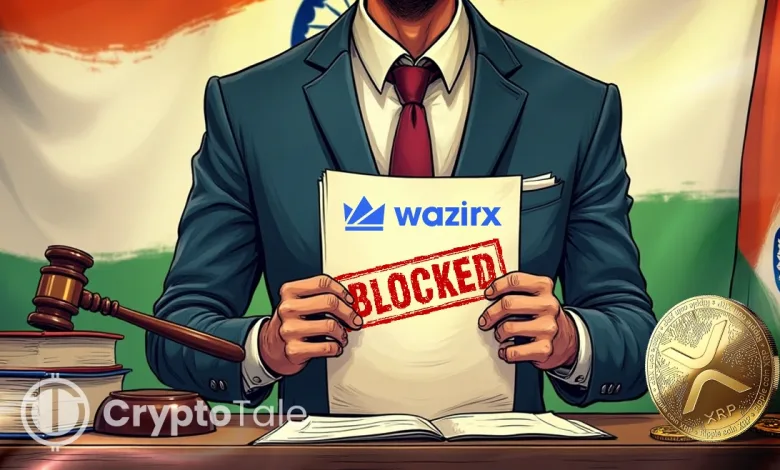Indian Court Affirms Crypto as Property, Blocks WazirX From User XRP

- Madras High Court rules crypto as property, strengthening user ownership rights in India.
- The decision prevents WazirX from using user XRP to cover hack-related exchange losses.
- Judgment affirms exchanges hold crypto in trust, ensuring fiduciary protection for users.
India’s legal system has delivered a major ruling that strengthens crypto ownership rights. The Madras High Court has declared that cryptocurrencies qualify as property under Indian law. The decision bars WazirX, India’s exchange, from redistributing a user’s XRP holdings to cover losses from a $234 million hack.
On Friday, Justice N. Anand Venkatesh ruled that crypto assets meet the legal definition of property. The case involved a WazirX user whose 3,532 XRP tokens were frozen after a cyberattack in July 2024. The exchange had proposed using customer assets to absorb losses, a plan the court rejected.
Court Affirms Fiduciary Protection for Users
Justice Venkatesh ruled that the user’s XRP, purchased before the hack, could not be used to offset exchange losses. He explained that crypto tokens, though intangible, possess the features of property. “It is not a tangible property nor a currency,” he said. “However, it is a property capable of being enjoyed and possessed in a beneficial form.”
The judgment establishes that cryptocurrencies can be held in trust and carry fiduciary protections. This means exchanges must treat user assets as client property, not company reserves. The decision also sets a clear precedent for how digital assets should be handled in custody and liquidation cases.
The court confirmed that users’ assets stored on exchanges remain their legitimate property. It ruled that WazirX could not reduce customer holdings to compensate for security or operational losses. Justice Venkatesh emphasized that there was no contractual clause allowing the exchange to redistribute assets. He called the plan unenforceable against users and referred to it as “a group insurance of a self-help group.”
Crypto Gains Legal Definition in India
The judgment also clarifies how Indian law defines crypto assets. The court referred to Section 2(47A) of the Income Tax Act, which recognizes cryptocurrency as a virtual digital asset. Justice Venkatesh noted that digital tokens are identifiable, transferable, and capable of exclusive control through private keys. These characteristics, he said, are enough to give them a proprietary character.
The judge also cited decisions made by the Supreme Court in Ahmed GH Ariff vs CWT and Jilubhai Nanbhai Khachar vs State of Gujarat. These precedents helped establish that intangible assets can still qualify as property under Indian law. The court ruled that cryptocurrency should be treated as a type of virtual asset investment rather than a speculative transaction.
The case also confirmed that Indian courts have jurisdiction over crypto assets accessed or traded within the country. Justice Venkatesh noted that the applicant used the WazirX app in Chennai and funded her trades using a local bank account. This connection placed the dispute under the Madras High Court’s authority.
Related: WazirX Restructuring Approved: Exchange to Restart Within 10 Days
Industry Reactions and Broader Impact
Crypto industry leaders described the judgment as a turning point for digital asset regulation in India. According to Digital South Trust founder Sudhakar Lakshmanaraja, the ruling upholds ownership rights and improves consumer protection. He pointed out that the decision gives the nation’s cryptocurrency ecosystem much-needed clarity.
Vikram Subburaj, CEO of Indian exchange Giottus, called the ruling a foundational step in India’s crypto jurisprudence. He said it sends a clear message that exchanges, users, and regulators will all be held to higher standards of governance.
The ruling also rejected WazirX’s claim that its Singapore-based restructuring automatically applied to Indian users. Justice Venkatesh said foreign corporate arrangements could not override the rights of Indian customers using the platform domestically.
Legal experts believe that the ruling will have an impact on how courts resolve future disputes involving crypto exchanges. It establishes that user funds held in exchange wallets are legally protected assets. The case marks one of the first major Indian court decisions to recognize digital currencies as property capable of ownership and legal protection.




